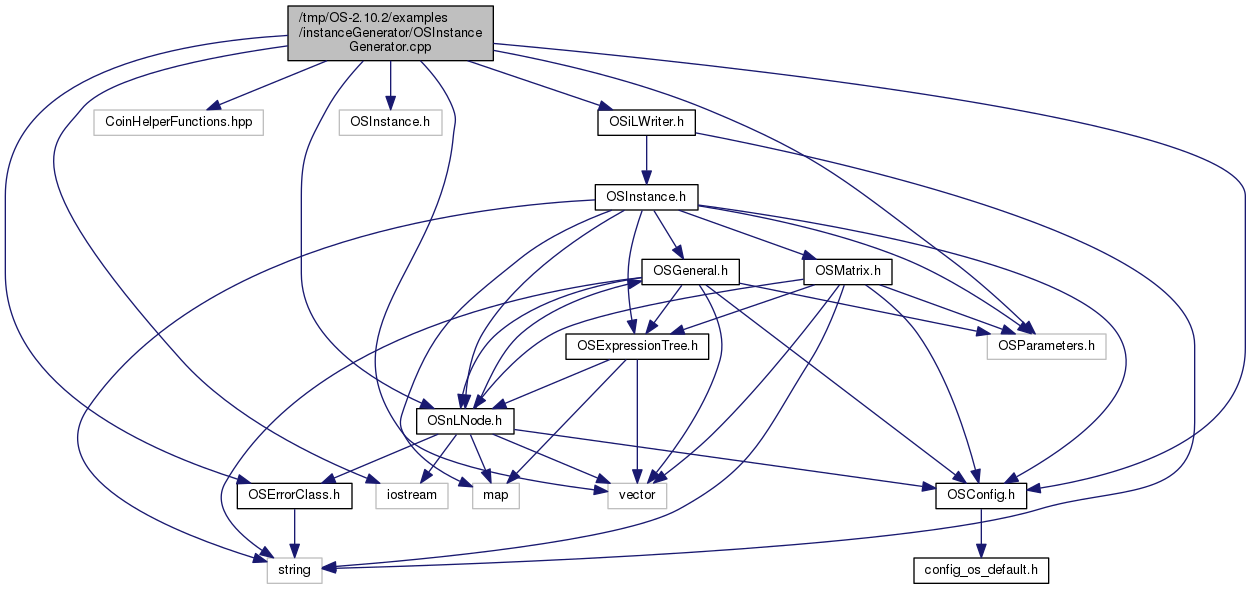#include <iostream>#include <vector>#include "CoinHelperFunctions.hpp"#include "OSConfig.h"#include "OSInstance.h"#include "OSiLWriter.h"#include "OSParameters.h"#include "OSnLNode.h"#include "OSErrorClass.h"
Include dependency graph for OSInstanceGenerator.cpp:

Go to the source code of this file.
Functions | |
| int | main () |
Detailed Description
- Remarks
- Copyright (C) 2005-2015, Robert Fourer, Horand Gassmann, Jun Ma, Kipp Martin, Northwestern University, and the University of Chicago. All Rights Reserved. This software is licensed under the Eclipse Public License. Please see the accompanying LICENSE file in root directory for terms.
In this example we show how to use the OSInstance API to generate an OSiL problem instance.
The objective of this example is to illustrate how to build a problem instance using the OSIntance class API. In particular we illustrate a number of the set() methods in the OSInstance class. As written, we need the LINDO nonlinear solver.
Model: A nonlinear model with multiple local minimizers. Adapted from the Samples directory of the LINDO API
maximize abs( x0 + 1) + .4 * x1; <br />
s.t. x0 + x1 <= 4; <br />
x1 * x2 + ln(x2) <= 6; <br />
x0 * x1 <= 0; <br />
max(x1 + 1, x0) >= 0; <br />
if(x1, 1, x1) <= 0; <br />
(x1 * 2 * x1 - x1) * x0 <= 0; <br />
-100 <= x0 <= 100 <br />
x1 is binary <br />
5 <= x2 <= 10; x2 is integer <br />
Definition in file OSInstanceGenerator.cpp.
Function Documentation
| int main | ( | ) |
Definition at line 50 of file OSInstanceGenerator.cpp.
 1.8.5
1.8.5